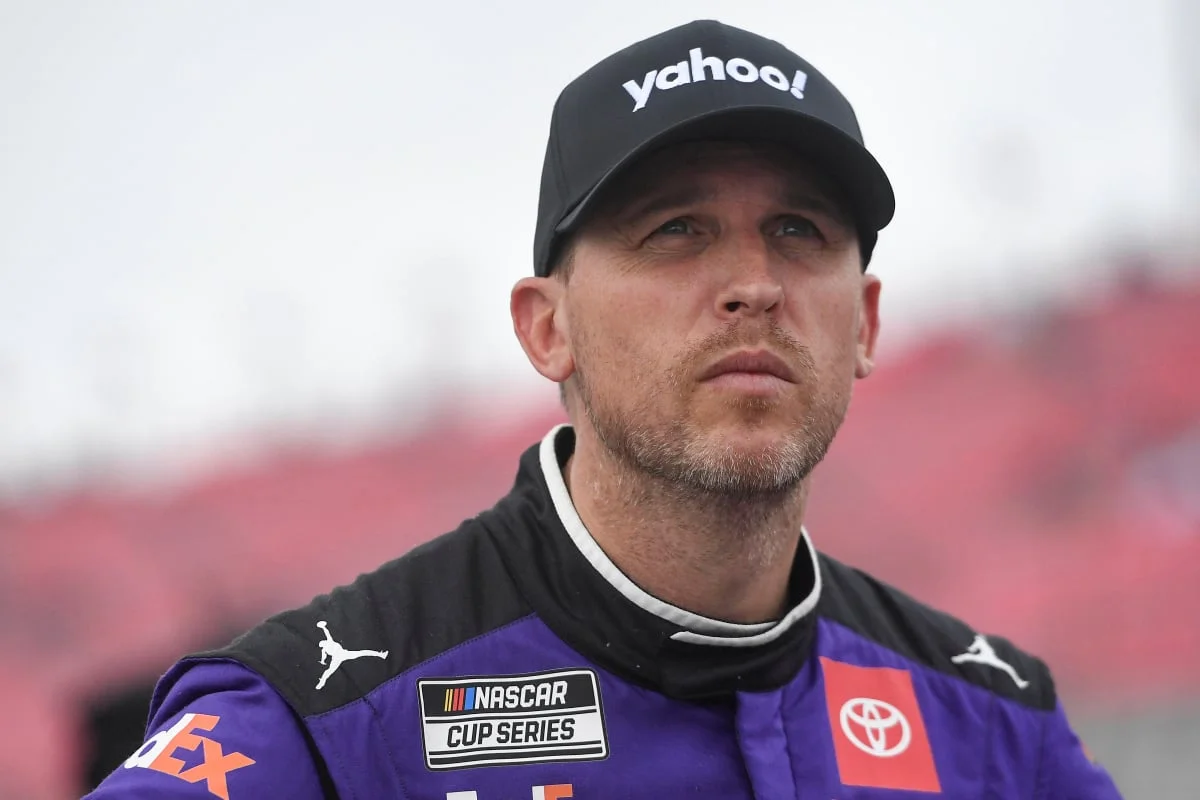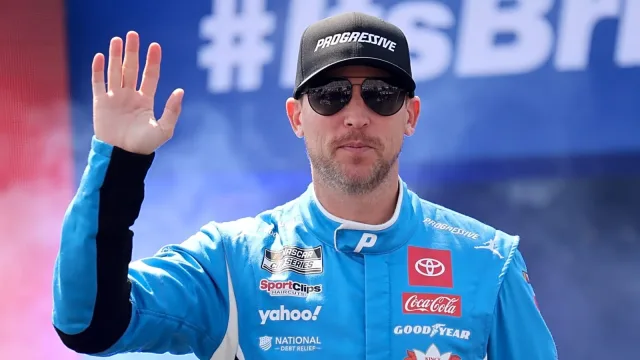Denny Hamlin, co-owner of 23XI Racing, has announced a new twist in the legal dispute between 23XI, Front Row Motorsports (FRM), and NASCAR. After the United States Court of Appeals for the Fourth Circuit rejected the teams’ request to rehear their case over the charter system, the teams responded by filing a new preliminary injunction, this time adding an unexpected restraining order against NASCAR. The focus of their challenge stems from what they allege are hidden monopolistic actions by the sport’s governing body.
The recent legal setback put 23XI Racing and FRM in jeopardy of losing their valuable charter status as early as this week. Despite the intensifying pressure, Hamlin has stressed that the team plans to continue racing even if their charter is revoked pending further legal resolution. This move introduces a fresh confrontational element into the ongoing struggle over the distribution and retention of NASCAR team charters.
Teams Cite Hidden Monopolistic Behaviors by NASCAR
Hamlin revealed that the rationale behind the new legal filings is recent evidence unearthed during legal discovery, which he claims reveals a pattern of monopolistic behavior by NASCAR. He alleges many of these incidents have been deliberately kept out of public view, with details redacted from official documents. These claims have elevated tensions, casting doubt on the fairness and transparency of the current charter system that teams rely on for participation and financial security.

We filed a new preliminary injunction, and we also filed a restraining order against NASCAR. The basis for the two are through discovery, we obviously revealed — and so much of this is redacted — a monopolistic series of acts that have occurred.
—Denny Hamlin, Co-owner, 23XI Racing
The contested charters are crucial to the business structure of modern NASCAR teams, offering guaranteed entry into races and associated revenue streams. For 23XI and FRM, the risk of losing these charters presents substantial operational and financial hurdles. Hamlin’s comments underscore the seriousness of the allegations and the potentially far-reaching implications for the championship structure and competitive landscape of the series.
Uncertainty Surrounds Charter Status Pending December Trial
With the formal trial now scheduled for December 1, Hamlin and the teams have asked for the status quo to be maintained, insisting NASCAR should not be allowed to revoke or sell the charters before the court’s decision. The teams’ legal filings argue that disrupting ownership now could irreparably harm them, especially if the court later rules in their favor. Hamlin asserts that if the teams prevail at trial, retrieving lost charters would be nearly impossible.
We believe the status quo of us having our charters should not be disturbed until this is resolved on Dec. 1 in the courtroom. The reason being… we’re seeking for them to not be able to take and then sell our charters because if we prevail in December, how do you get that back? You can’t.
—Denny Hamlin, Co-owner, 23XI Racing
Despite the urgency, NASCAR has been given until 5 p.m. ET on Wednesday of this week to respond to the restraining order request. While 23XI and its partners hoped for an expedited answer, the court provided a slight delay for the sport’s leadership. The next few days are critical, as the outcome of these filings could dramatically alter the future trajectory of 23XI, FRM, and their participation in the sport.
Denny Hamlin Reaffirms Commitment to Racing Beyond Charter Status
Amid the legal turmoil, Bubba Wallace, a star driver for 23XI Racing, expressed indifference about the dispute, emphasizing his focus on performance rather than the ongoing legal wrangling. Denny Hamlin, too, has taken a resolute stance, stating that the team remains committed to competing in the 2025 season, regardless of whether it holds a charter or not. This determination reflects the team’s resilience and underscores the high stakes in their ongoing battle with NASCAR.
Hamlin further suggested that the decision to file a new injunction was driven by compelling evidence discovered during the case. He maintained that, from the team’s perspective, the goals for the upcoming season and the playoffs remain unchanged, no matter the outcome of the charter dispute.
We’re going to race, We’ve always said we’re committed to racing this season, whether it be chartered or uncharted. But certainly, there’s been some evidence that has been revealed that warrants this preliminary injunction. … Everything would be the same there as far as racing for the playoffs.
—Denny Hamlin, Co-owner, 23XI Racing
This attitude reflects a strong will to persist in the face of adversity and hints at the ongoing conflict’s emotional toll on both the teams and the sport. The uncertainty surrounding charter status has added to the turbulent atmosphere, with both sides waiting for the court’s next moves.
The Stakes for NASCAR, 23XI, and the Sport’s Future
The legal wrangling between 23XI, FRM, and NASCAR has implications far beyond just the teams involved. The dispute challenges the transparency and governance of the sport’s business model, potentially setting new precedents for team ownership, entry rights, and competition fairness. As the December trial approaches, the outcome could reshape the charter system that forms the bedrock of modern NASCAR operations.
With high-profile figures like Denny Hamlin, Bubba Wallace, and Michael Jordan indirectly implicated through their roles and affiliations, and with NASCAR executives under increasing scrutiny, the sport’s leadership faces pressure to address longstanding team grievances. Fans, drivers, and sponsors alike are watching closely, keen to see whether rules will change—and whether the spirit of competition will win out against commercial and political interests.
As the deadline for NASCAR’s response approaches and a pivotal trial looms, all parties are bracing for further drama. The Denny Hamlin 23XI NASCAR restraining order controversy is rapidly evolving, promising to set the tone for high-stakes legal and competitive battles in the months to come.
Our Reader’s Queries
Q. How did Denny Hamlin get so rich?
A. When he started racing full-time in the Cup Series with Joe Gibbs Racing in 2006, Hamlin began an impressive career. He has achieved 51 Cup Series wins and three Daytona 500 victories in 2016, 2019, and 2020. Over time, he has also earned millions.
Q. Did Denny Hamlin and Jordan Fish get married?
A. Denny Hamlin is planning to marry Jordan Fish. Since she was young, Jordan loved dancing. This passion led her to perform for the Charlotte Bobcats NBA team. The team now goes by the name Charlotte Hornets. Jordan met Hamlin while performing at a Bobcats game.
Q. How did Denny Hamlin get rich?
A. Denny Hamlin’s net worth is about $65 million, thanks to his racing success, endorsement deals, team ownership, and wise real estate investments. Whether driving or managing a racing team, Hamlin keeps making smart decisions both on the track and in his business ventures.
Q. Are Michael Jordan and Denny Hamlin friends?
A. Michael Jordan, part-owner of NASCAR’s 23XI Racing team, complimented his partner Denny Hamlin. Hamlin had just won his second Cup Series race of the season at Darlington. Jordan admired Hamlin’s drive to compete and remarked that criticism only motivates him to improve.
